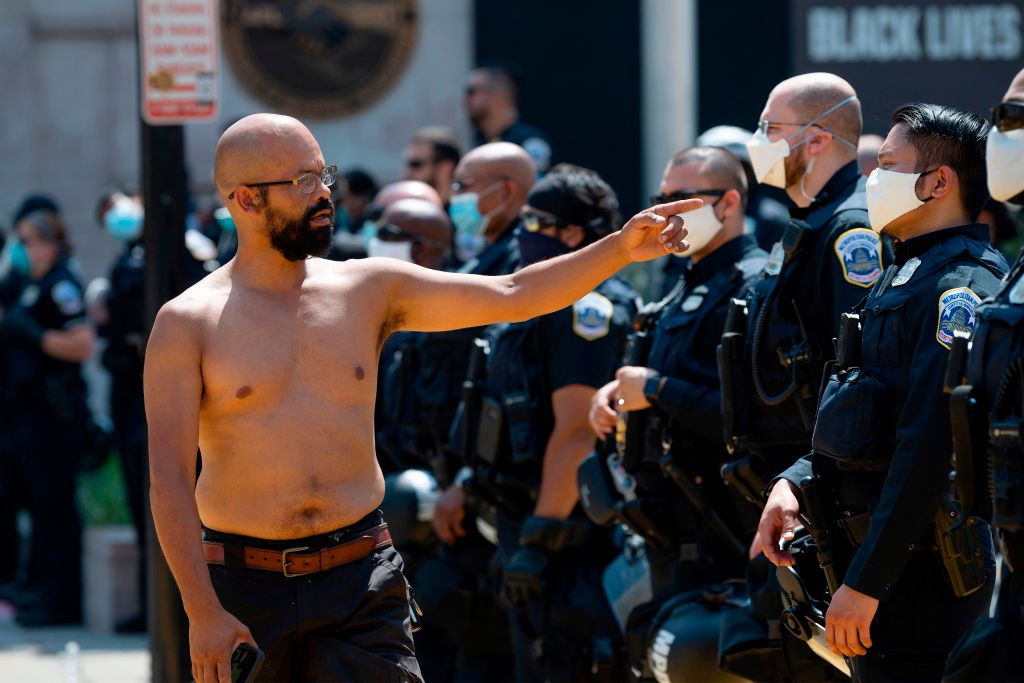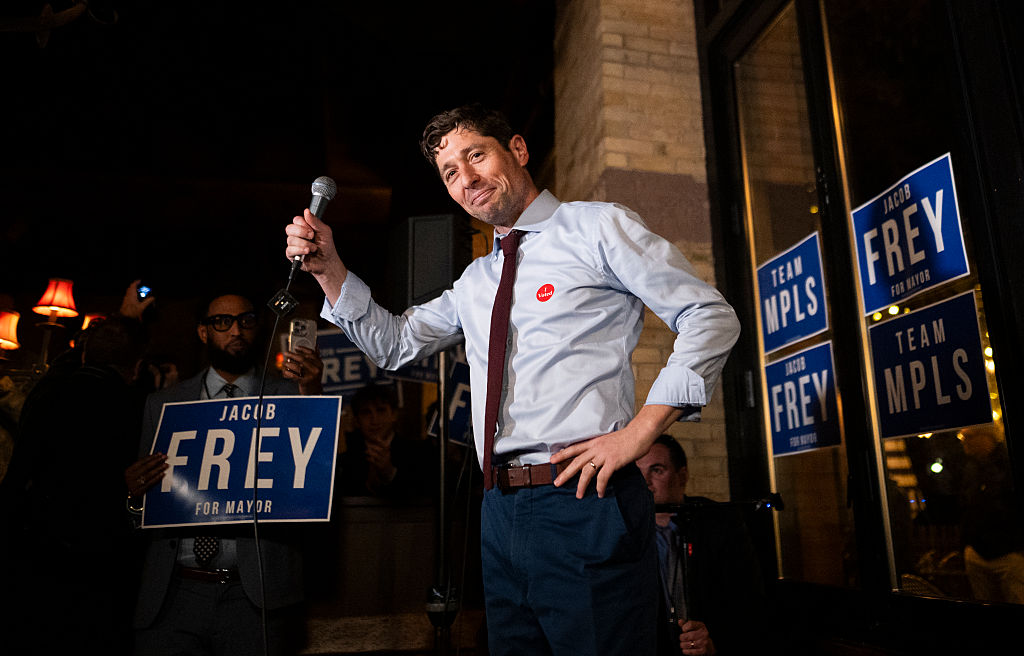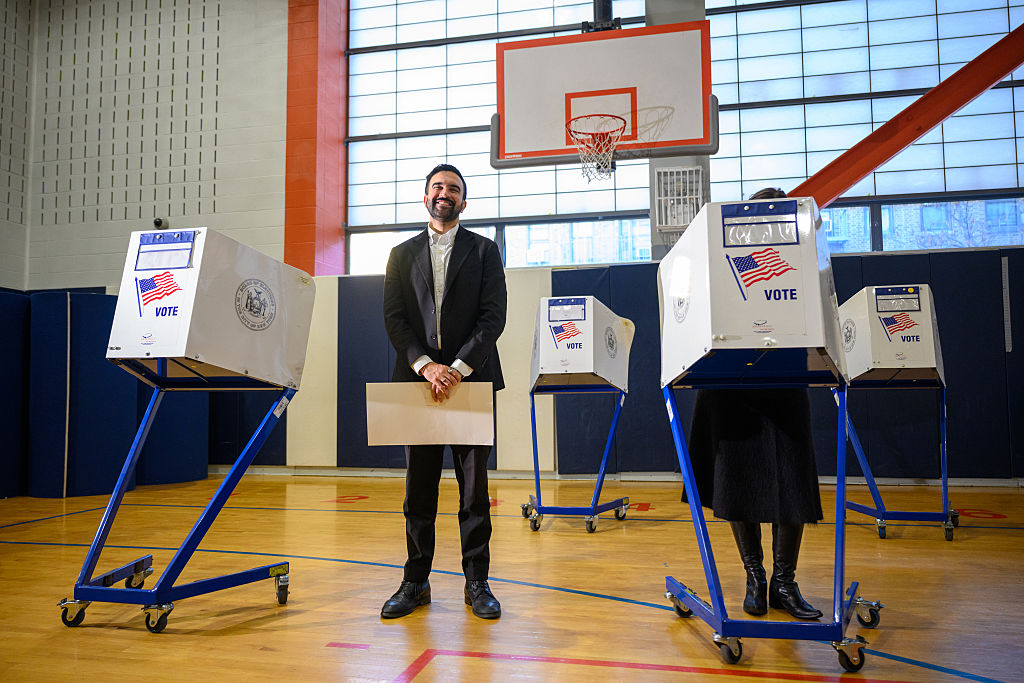When I moved to New York in 2005 to be the Daily Telegraph’s correspondent, the first thing I was struck by was American manners.
I’d been expecting the New York backchat I’d learnt growing up from Danny DeVito’s Louie De Palma in Taxi — the rudest dispatcher at the Sunshine Cab Company. Instead, people called me ‘sir’ and I soon started calling people ‘sir’ and ‘madam’. Friends of friends I’d never met invited me to dinner.
When I headed to New Orleans to cover Hurricane Katrina, the offers of hospitality in a shattered city were overwhelming. The supposed fine manners of my native England were nothing compared to American kindness and thoughtfulness.
That was 15 years ago. Since then, where have those good manners gone?
People are right to be outraged at the appalling murder of George Floyd. But that doesn’t justify people screaming at police officers or each other and indulging in vandalism.
It’s striking that, the closer you get to the epicenter of grief, the better people behave. Look at the dignified behavior of George Floyd’s justifiably outraged family, in contrast to the screamers and vandals in cities thousands of miles from Minneapolis.
People must be allowed to protest across the world. But there’s no reason why protest and justified anger should turn into vandalism, looting or ad hominem abuse of innocent policemen at those protests.
The civil rights movement was all about the dignity of the person — the person who had had his civil rights infringed and the person who protested on his behalf. Martin Luther King matched his delicately poised prose with a dignity in bearing, dress and oratory that only increased the power of that prose. Decency has been lost and the results are ugly.
Rudeness and violence don’t help the cause either. They may in fact set it back. As Donald Trump’s poll numbers falter, he’s trying to salvage his election chances by attacking the violent protesters: by fighting rudeness with rudeness. He couldn’t have done that if protesters had followed the dignified Martin Luther King route.
At Trump’s first big post-COVID campaign rally in Tampa, the red meat of his speech was devoted to the ‘left-wing radicals [who] burn down buildings, loot businesses, destroy private property, injure hundreds of dedicated police offices’. Later that week, he laid into the ‘vandals, hoodlums, anarchists and agitators’, who tried to tear down the Andrew Jackson statue near the White House.
When the Mayflower Pilgrims landed at Provincetown, 400 years ago this November, they built their shining city on a hill on Puritan self-discipline, self-restraint and strict codes of conduct. These were codes I recognized when I arrived in New York 15 years ago. They are still there but they are under attack: most notably through the rudeness echo chamber that is the internet, and its two loudest rooms, Facebook and Twitter.
Rudeness — once restrained by the politeness that comes with real face-to-face contact — is given free rein when it’s just you, on your own in your bedroom, pouring out online bile. That rudeness is buttressed by your carefully curated horde of followers, boosting your nastiest comments and shouting down anyone who dares disagree.
***
Get a digital subscription to The Spectator.
Try a month free, then just $3.99 a month
***
The decline of religion has been accompanied by a worship of the self, pumped up by over-praising parents and teachers. And when the venerated self doesn’t get what it demands, it goes crazy with anger and rudeness.
When will the rude realize that rudeness does you no favors? I long ago learnt the ancient art of saying sorry and not meaning it, to avoid confrontation or a punch in the mouth.
Manners are good for you. In a paradoxical way, suppression of your ego actually helps the ego get along in the world. In my day job as editor of a British magazine, I sit calmly and listen as more pompous contributors shout and scream at me about my correction of their misspelling of the word ‘dog’. Then I quietly add them to a mental blacklist headed ‘People I Will Never Commission Again’.
Good manners never hurt anyone, they improve the public realm and — N.B., all rude egomaniacs — they make you more successful.
Harry Mount is editor of the Oldie.

























